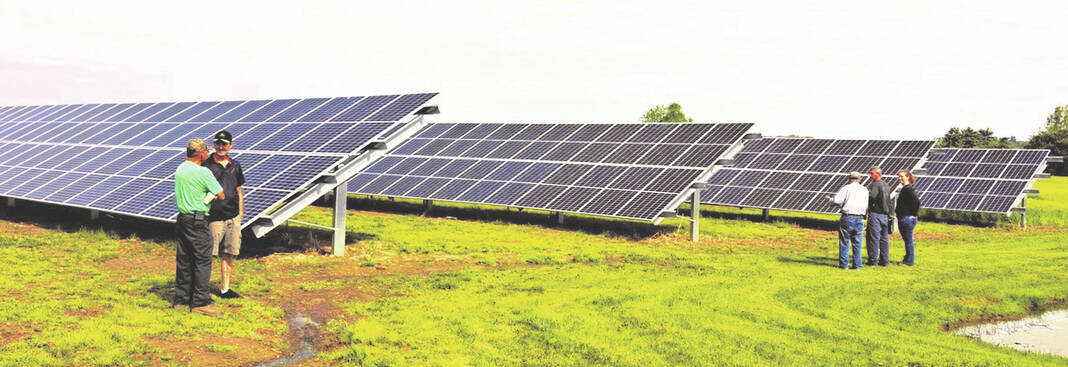
Panels can be roof or ground-mounted, and customers must purchase insurance for them. According to consultants at Paradise Energy Solutions, they are guaranteed to survive winds of up to 80 miles per hour, and golf ball-sized hail.
Tammy Watts | Daily Advocate

Paradise Energy Solutions held an open house at Stucke Farms in Versailles last month. The company installs solar systems for individuals, farms, and businesses.
Tammy Watts | Daily Advocate
By Tammy Watts
DailyAdvocate.com
VERSAILLES — Aside from industrial projects, such as Apex Clean Energy’s Painter Creek Solar proposal, and smaller, “community solar” projects of up to 65 acres, there is a third type, specializing in installations for individuals, farms and businesses. Paradise Energy Solutions held an open house at Stucke Farms in Versailles last month. The Mennonite-owned company was started in Pennsylvania in 2009, and has had an office in Sugarcreek, Ohio for the past five years.
“Ohio systems are only designed to cover 90-95 percent of your electric costs, because if you go over 100 percent, you’re giving the utility company free power,” explained Chris Roach, Solar Consultant for Paradise. Some states, like Pennsylvania, allow solar customers to sell extra power back to the utility company, however, Public Utilities Commission of Ohio (PUCO) rules do not allow for it. Some Florida utility companies have recently approved “minimum bills,” including those for solar customers, which can be anywhere between 25 and 35 dollars. It is unknown whether that practice will become widespread in other states.
Panels can be roof or ground-mounted, and customers must purchase insurance for them. According to Roach, they are guaranteed to survive winds of up to 80 miles per hour, and golf ball-sized hail. Paradise guarantees each system’s electricity production and workmanship for ten years.
The average cost of a solar installation by Paradise is $34,640, however, if a homeowner is not connected to the electrical grid, it could double the cost of the system. For single-family homes, it takes roughly 15 years to recoup the original investment, in energy savings. A farm or business may see the payback within six to eight years, due to depreciation write-offs, and grants. There is also a federal tax credit of 26 percent for systems installed in 2020-2022. That credit drops to 22 percent for systems installed in 2023, and will expire altogether in 2024, unless Congress renews it. It is also important to note that it is a nonrefundable tax credit, which means that a customer would not get a refund for the amount of the tax credit that exceeds their tax liability.




